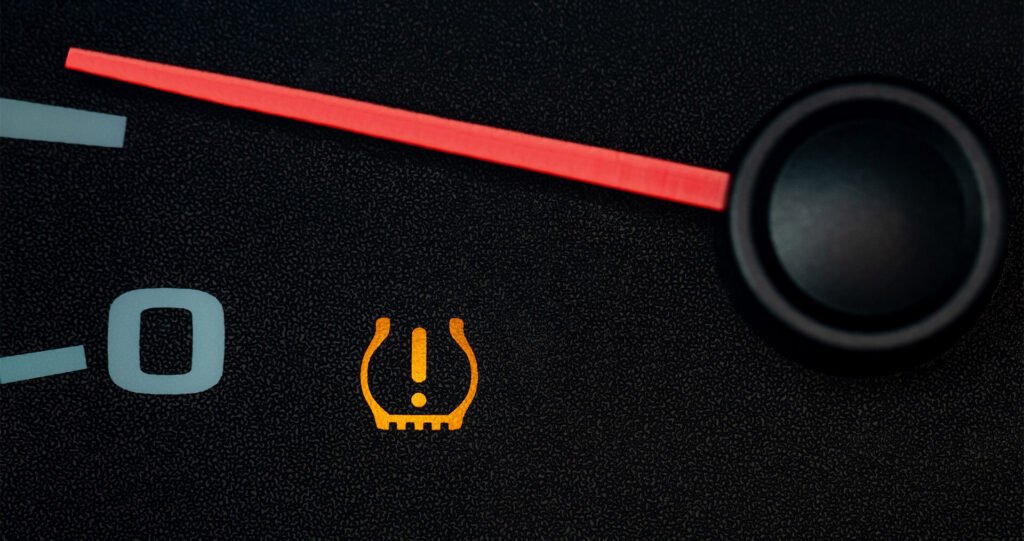TPMS is a Tyre Pressure Monitoring System. In most cases an issue with the tyre pressures would be indicated with a light on your dash as shown in the picture below. If you see this light, come in so we can take a look.

TPMS (Tyre Pressure Monitoring Systems) became mandatory on all new passenger vehicles sold in the EU as of November 1st 2014. A TPMS warning light became a reason for an automatic failure of an MOT as of January 1st 2015.
If you have any TPMS fault, flashing or solid TPMS light on your dashboard, come to Headley Tyres and we can resolve this for you.
There are two main ways in which the Tyre pressure can be monitored:
Direct TPMS
Direct TPMS consists of a battery powered sensor which is attached to the base of the valve inside each tyre. This sends a transmission to the vehicles central processing unit every 30 to 60 seconds indicating whether the pressure in the tyres is correct or not.
Low Battery in these sensors, weathering damage, impact and several other reasons can mean that these need to be replaced.
We can supply and fit new sensors to most vehicles. We can also calibrate sensors to your vehicle if you have already bought them personally for a replacement.
Indirect TPMS
Indirect TPMS works on the wheel speed sensors within a vehicle. With this method, when the tyres are changed or when the tyre pressures are set, the system should be calibrated (reset).
Over the next few miles of driving after calibration, the speed at which the wheels rotate will be monitored. If at any point one wheel starts to rotate quicker than when registered, the TPMS indicator on your dash will highlight indicating a problem.
This method isn’t as accurate as Direct TPMS, and can highlight incorrectly due to several factors, but it is always best to get the vehicle checked out by a professional if you get this warning.
